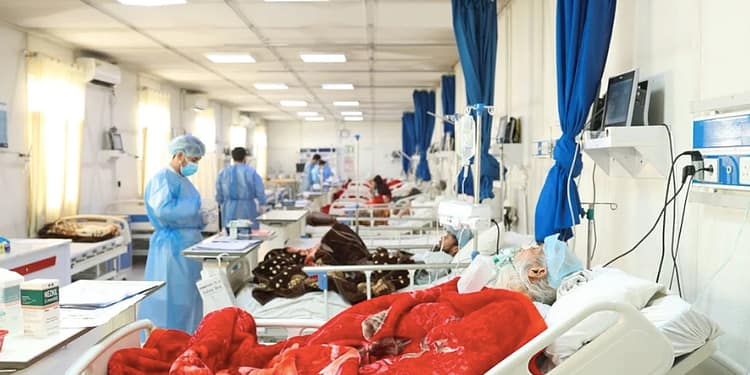The World Health Organization (WHO) has issued an urgent appeal to raise funds 1.5 billion US dollars. This amount will be used to combat an unprecedented global health crisis, driven by conflict, climate change, epidemics and displacement. By 2025, 305 million people will need urgent humanitarian assistance.
Health emergencies at critical levels
Ibuprofen Director General of the WHO, Dr. Tedros Adhanom Ghebreyesus, highlighted the seriousness of the situation. Currently, the organization is responding to 42 active health emergencies, including 17 grade 3. These crises, considered the most serious, require the highest levels of intervention.
According to Dr. Tedros, Health systems are on the verge of collapse due to limited global financial resources. “Conflicts, infectious outbreaks and climate disasters are no longer isolated events. They are constant, intensifying and deeply affecting the most vulnerable communities,” he said.
Actions to protect the most vulnerable
WHO works tirelessly to provide health care in conflict zones such as Sudan, the Democratic Republic of the Congo and the Occupied Palestinian Territory.
The organization's priorities include healthcare services and essential supplies to treat critical illnesses and injuries; Support for maternal and child health and treatment of malnutrition to protect the most vulnerable; vaccination campaigns focused on preventing outbreaks of infectious diseases and assisting mental health for populations traumatized by conflict and disasters.
Climate change, conflicts and epidemics: Crisis factors
Climate change, along with armed conflicts, displacements and epidemic outbreaks, has created a perfect storm. These interconnected factors have deepened health crises, widening inequalities and increasing risks for millions of people.
Dr Tedros stressed that WHO does not only respond to immediate emergencies. It also works to empower communities in protective and resilience measures.
The 2025 Health Emergency Appeal is not just a request for funds. It is an invitation to act in the face of the growing gaps between needs and resources. “Supporting this effort is a crucial investment in equity and global health,” Dr. Tedros stressed.






